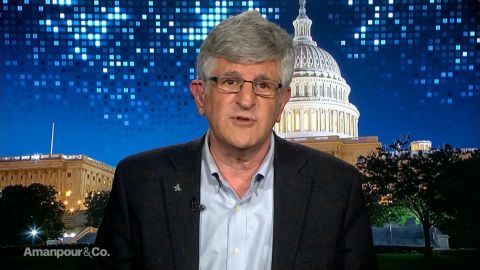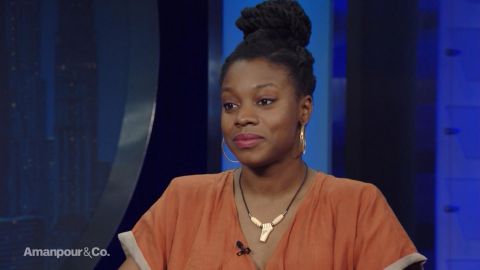Read Transcript EXPAND
PAUL OFFIT, PROFESSOR OF VACCINOLOGY, UNIVERSITY OF PENNSYLVANIA: Right. Well, there’s actually a distinction between mandatory vaccination and compulsory vaccination. What the Mayor De Blasio is arguing for is mandatory vaccination, which is to say he’s asking citizens in his — in those communities to be vaccinated. If they don’t get vaccinated, then they have to pay a societal price, like a fine, for example. In Philadelphia in 1991, we had, in a several month period, we had 1,400 cases of measles and nine deaths that centered on two fundamentalists Christian churches. They were faith healers. Meaning, they didn’t believe not only in vaccines, they didn’t believe in medical care. And so, they served as the epicenter for that outbreak.
We have compulsory vaccinations, which is to say, those parents, by court order, had to be vaccinated, and did. And so, I think the Mayor De Blasio is stuck in many ways. I mean, he wants to stand up for the health of those communities, and the only way to do that is to say, “You really need to be vaccinated because vaccines are safe and effective.”
When people in the community are making the decision not to be vaccinated, they are making it based on bad information. They have this misconception that the vaccine is dangerous when it’s not. And so, what do you do in situations like that? I think, ultimately, you have to, at times, compel people to do the right thing. I mean, we compel people to stop at stop signs, we compel people to sit in car seats, or else they get a ticket, because it’s the right thing to do. It’s the safe thing to do. I feel sorry for Mayor De Blasio because he is in such a tough spot.
CHRISTIANE AMANPOUR: If you do try to force people, who, for whatever reason, think a vaccine is dangerous, it may make them go further underground, so to speak.
OFFIT: Right. But what else can you do? I mean, the fact of the matter is, they have this false concern that the MMR vaccine, measles mumps, rubella vaccine is dangerous, it’s not dangerous. I mean, they believe it might cause autism, which isn’t true, or it might cause a variety of other chronic diseases like, you know, diabetes or multiple sclerosis or hyperactivity disorder or whatever, that’s not true. So, when people then that are making that choice, what do you do? I mean, isn’t it your alienable right as a citizen to allow your child to catch and transmit a potentially fatal infection? I think the answer is no. And I think what Mayor De Blasio is doing is standing up for those children.
Now, might there be a backlash? There might. But I think that the alternative, which is to allow that virus to continue to spread, allow that virus to continue to cause suffering and hospitalization and the possibility of death is just too awful to imagine. And so, he is stepping forward at a time, hopefully early enough where that won’t happen.
AMANPOUR: What happens if it goes undealt with, if it’s not vaccinated?
OFFIT: I think we lived through the nightmare scenario in Philadelphia in 1991 when we had 1,400 cases and nine children died. We were pretty slow to react to that. I mean, to essentially force people to be vaccinated because I think when it comes to the law, we don’t like to tell people how to raise their children, we certainly don’t like to tell people how to practice their faith. But occasionally, a line is crossed and that’s been true here where you do have to stand up for those children. I mean, I think we always assume that parents are making the best decision for their children, but that’s not always true. And in this example, it’s not true here.
About This Episode EXPAND
Christiane Amanpour speaks with Dr. Paul Offitt about vaccination; and Rob Delaney & Sharon Horgan about their sitcom “Catastrophe.” Alicia Menendez speaks with director Nia DaCosta about her film “Little Woods.”
LEARN MORE


